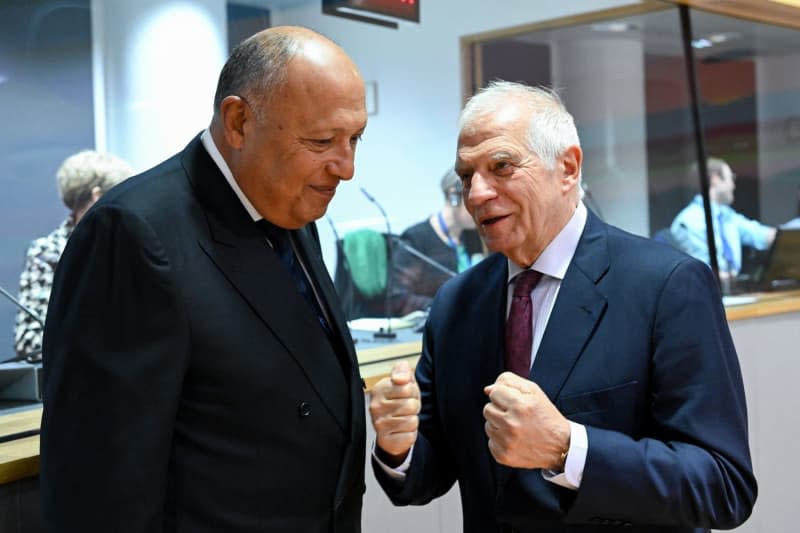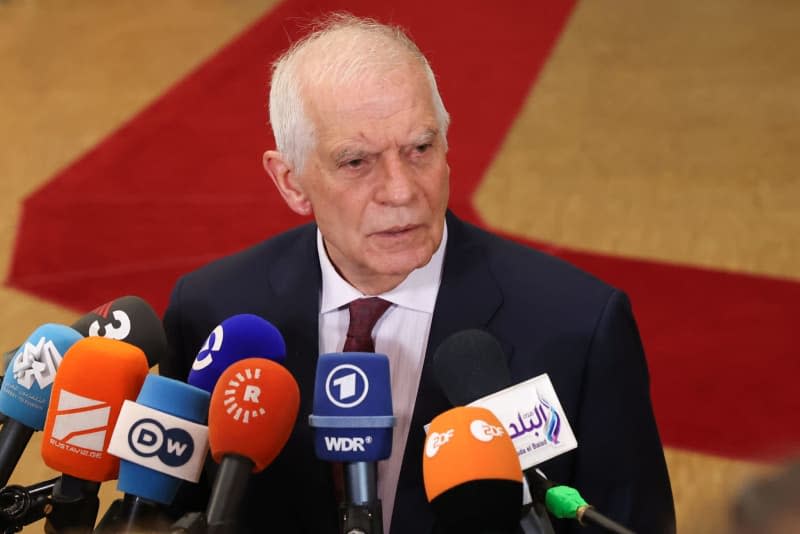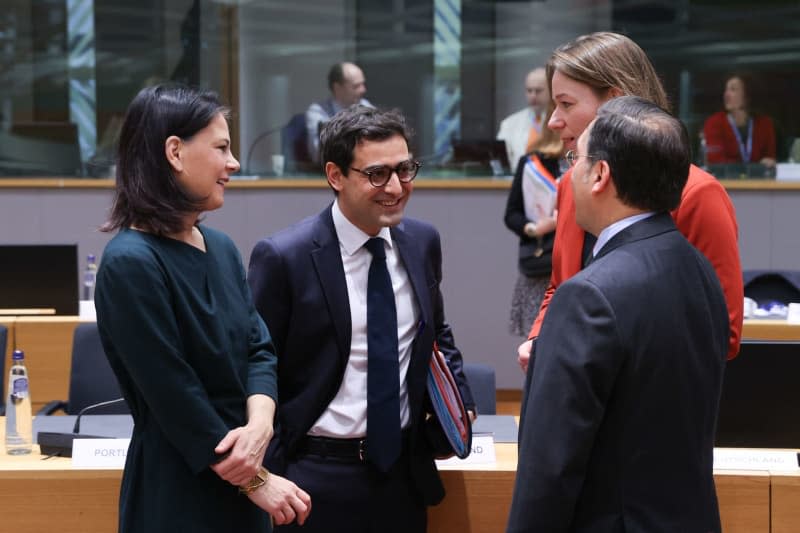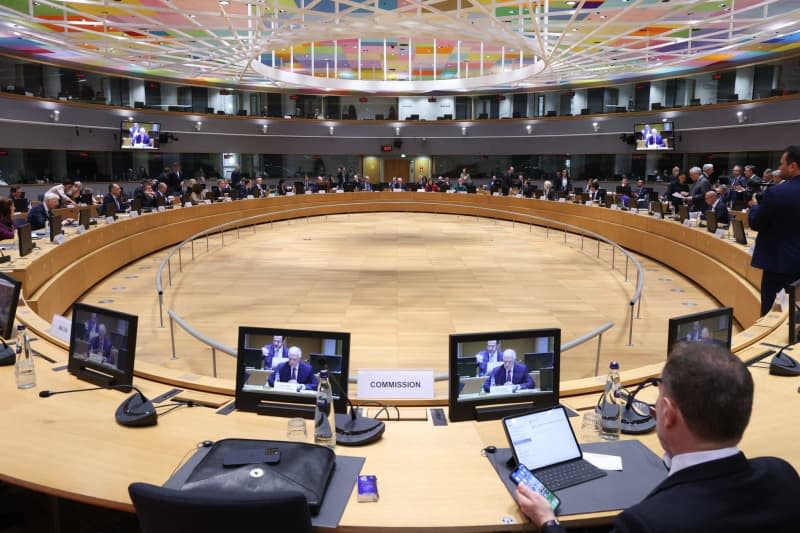Top EU diplomat lays out two-state strategy to end Middle East war

- Oops!Something went wrong.Please try again later.
The European Union's top diplomat, Josep Borrell, wants a two-state solution to the conflict in the Middle East to be the bloc's priority with a plan proposed on Monday ahead of a meeting of EU foreign ministers.
"I think that we have to stop talking about the peace, the peace process, and start talking more concretely about the two-state solution process," he said on arrival in Brussels.
EU foreign ministers are to discuss the war raging between Israel and Hamas in Gaza after the October 7 terrorist attacks with the potential for the establishment of an independent Palestinian state a central topic.
According to a senior diplomat from the EU's External Action Service, the bloc's diplomatic service, this proposal would be coupled simultaneously with security guarantees for Israel.
A political framework for the Palestinian people could also influence the current war between the Islamist Hamas and Israel. The aim must be for Israel to be able to have completely normal relations with the Arab countries, the diplomat said.
German Foreign Minister Annalena Baerbock gave her backing to the two-state solution, stressing that "there can only be peace if there is peace for all people in the region."
"Israel can only live in security if Palestinians can live in dignity in security. And Palestinians and Palestinians can only live in dignity, security and freedom if Israel lives in security," she said.
Doubts surround the viability of the long-sought two-state solution however after Israeli Prime Minister Benjamin Netanyahu again forcefully rejected the notion of a sovereign Palestinian state.
"I will not compromise on full Israeli security control over the entire area west of the Jordan [River] - and this is contrary to a Palestinian state," Netanyahu said at the weekend.
Irish Foreign Minister Micheál Martin criticized the Israeli's leaders comments as "unacceptable and do not contribute in any way to the prospects of peace."
Jordan's Foreign Minister, Ayman Safadi, said Israel's rejection of a two-state policy was "dooming the future of the region to more conflict and more war."
After imposing new sanctions on Hamas supporters, EU plans for a military mission to secure commercial shipping in the Red Sea under attack from Houthi rebels are also set for discussion.
Baerbock urged the bloc to speed up preparations for the mission, expressing dismay at the damage rocket attacks were doing to "one of the central arteries of free shipping."
Since the outbreak of the Israel-Hamas war, Iran-backed Houthi rebels have repeatedly attacked ships with an alleged Israeli connection in the Red Sea, forcing major shipping companies to avoid this key Europe-Asia trade route via the Suez Canal.
In response, the United States, Britain and other Western allies launched airstrikes on several Houthi rebel positions in Yemen, escalating already high tensions in the Middle East and raising the spectre of a wider regional conflict.
Plans for the EU's military mission to protect commercial shipping in the Red Sea do not include a mandate to join US attacks on Houthi positions in Yemen, multiple EU diplomats told dpa.
With the financing of Ukraine's future military aid from the EU undecided, EU foreign ministers are also set to hear from Ukrainian Foreign Minister Dmytro Kuleba via video call.




